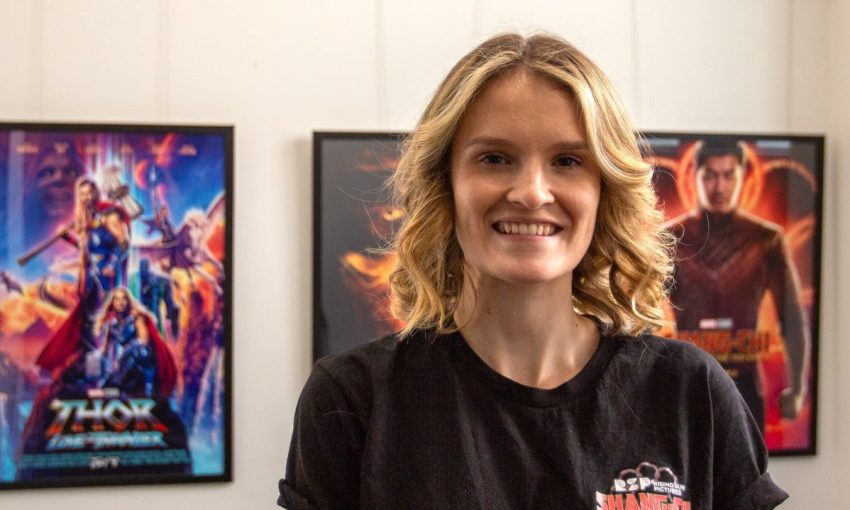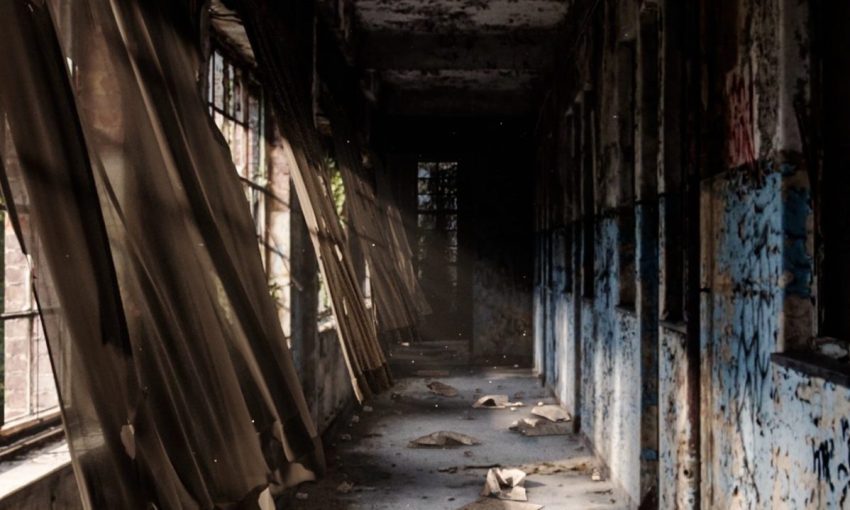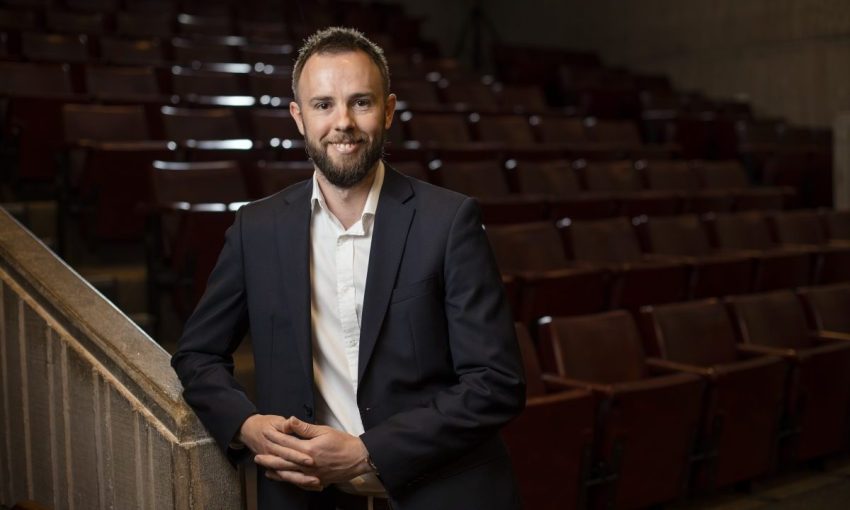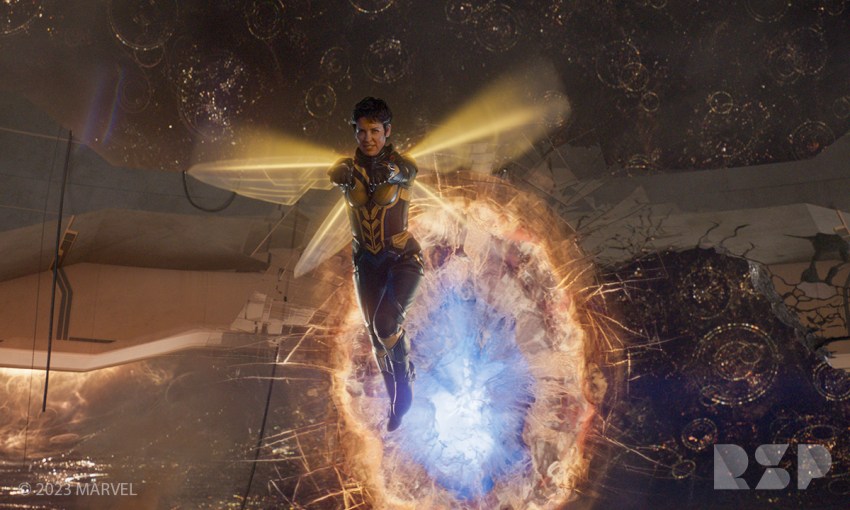Australia’s film and screen industry has been riding high in recent years and, for those looking to start or further a career in visual effects, there’s world-class training here in Adelaide.
Making it into the screen credits
Layout artist Sash Elliott had an entirely relatable career aspiration as a kid.
“My goal in life was to get my name in the credits of a big movie,” says Sash, who has been working on the visual effects for Ahsoka, the new Star Wars Original series streaming on Disney+.
Find out about VFX at UniSA here.
South Australia’s Rising Sun Pictures (RSP), where she’s been employed since late 2020, has a unique partnership with the University of South Australia, her alma mater. The pairing provides one of the only university-delivered programs globally where students can train onsite at a world-class visual effects studio.
“Although I knew I wanted a career in film after high school, I wasn’t set on a particular role within the industry,” she explains, saying she chose the then Bachelor of Media Arts because it offered a wide variety of film-related subjects.
Her first experience of VFX in the Intro to Computer-Generated Imagery (CGI) course, she says, opened her eyes to the craft as a potential career path. “Seeing Rising Sun Picture’s work really inspired me, and it was amazing learning how CGI worked behind the scenes.”
The increasing popularity of streaming platforms and worldwide demand for original content saw a global surge in the need for skilled talent. In 2022, the local post, digital and visual effects (PDV) industry was worth over $550 million, an increase of 71 per cent from the previous year and 56 per cent above the 5-year average.
The opportunities for visual effects artists, visual storytellers, post-production specialists and filmmakers are big, whether they’re based here or internationally, with the global streaming market expected to hit $416 billion by 2030.
UniSA and RSP’s partnership began with the Bachelor of Film and Television (now in its ninth year), the Graduate Certificate in Dynamic Effects and Lighting and the Graduate Certificate in Compositing and Tracking. So far, it has launched the careers of more than 200 graduates in the industry, with 70 of those working at RSP.
Sash’s degree has now morphed, pun intended, into UniSA’s Bachelor of Visual Effects, being offered for the first time in 2024. With no portfolio required for entry, it covers a wide range of VFX disciplines, including compositing, tracking, dynamic effects, lighting, 3D animation, creature effects, 3D modelling and look development. Also new for 2024 are the Graduate Certificate in 3D Animation and the Graduate Certificate in Creature Effects. All three qualifications will be delivered together with RSP and were developed to meet growing industry demand.
Dr Josh McCarthy who heads up the Bachelor of Visual Effects program says the partnership with RSP gives the students a distinct advantage as they learn onsite from working VFX artists and supervisors at the leading edge of the industry.
“There’s quite a big difference learning from someone who worked in industry 10 years ago, compared with learning from someone who was working on an industry project five minutes ago,” Josh says.
Students study the Bachelor of Visual Effects on campus at UniSA and onsite at RSP’s new, state-of-the-art facility in Flinders Street, gaining first-hand experience of how a world-class VFX studio operates. This industry-based learning starts from first year with students spending an unparalleled 60 per cent of the three-year degree at RSP. Core courses at UniSA in the foundational knowledge, skills and theory of VFX prepare them for the industry-based learning experience. And while the industry is one of rapid change with new tools and techniques brought into production every year, Josh says these core elements tend to stay constant.
For Sash, who says her “whole experience studying at UniSA was fantastic”, the most memorable part was her specialisation in third year when she learnt from RSP’s team using industry standard software.
“I also made some lifelong friends who are now working in VFX studios all around Australia,” she adds.
Josh says being onsite in a working studio, Monday to Friday, nine to five, for more than a year, is inherently more valuable than a typical student placement. Opportunities beyond the classroom include attending RSP staff meetings and networking events.
“Students get to see how a visual effects studio operates on a day to day basis. And they have great opportunities to engage with local and national VFX recruiters. This is crucial, as many VFX companies don’t advertise junior roles.”
Locally, those employers include large, globally renowned companies RSP and MPC, as well as smaller studios including Monkeystack, Kojo, Artisan Post, We Made A Thing Studios and Resin, to name but a few.
With the UniSA programs intent on delivering industry-ready graduates who are up to speed with the latest tech, it’s worth mentioning RSP is often leading the innovation to create previously out-of-reach scenes for film and screen. A by-product of this, Josh says, is “an impressive array of awards”.
Being onsite at RSP meant Sash’s final year felt to her more like an internship. “I wanted to show that I was committed and passionate about a career in VFX, so I often stayed back to make the most of the experience.” It paid off and on graduating, she took up a position at RSP as a frontline services wrangler before moving into the layout department in February 2021.
Recently, she was given the opportunity to lead the Ahsoka series for her department and took it on, eager for the challenge and the learning experience.
“I’m always looking for new ways to learn and push myself.”
UniSA’s newest visual effects qualifications launch in 2024.







